Filter by
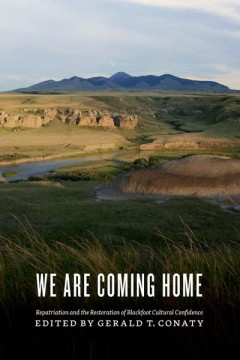
We Are Coming Home Repatriation and the Restoration of Blackfoot Cultural Co…
We Are Coming Home is the story of the highly complex process of repatriation as described by those intimately involved in the work, notably the Piikani, Siksika, and Kainai elders who provided essential oversight and guidance. We also hear from the Glenbow Museum’s president and CEO at the time and from an archaeologist then employed at the Provincial Museum of Alberta who provides an inside…
- Edition
- -
- ISBN/ISSN
- 9781771990172.01
- Collation
- -
- Series Title
- -
- Call Number
- 304 pages
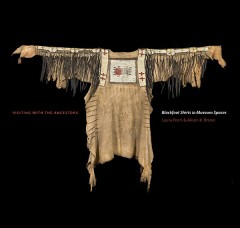
Visiting With the Ancestors Blackfoot Shirts in Museum Spaces
In the pages of this beautifully illustrated volume is the story of an effort to build a bridge between museums and source communities, in hopes of establishing stronger, more sustaining relationships between the two and spurring change in prevailing museum policies. Negotiating the tension between a museum’s institutional protocol and Blackfoot cultural protocol was challenging, but the expe…
- Edition
- -
- ISBN/ISSN
- 9781771990370.01
- Collation
- -
- Series Title
- -
- Call Number
- 10.5 x 10, 232 pages
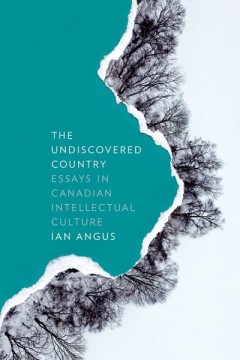
The Undiscovered Country Essays in Canadian Intellectual Culture
In this sequence of essays, Ian Angus engages with themes of identity, power, and the nation as they emerge in contemporary English Canadian philosophical thought, seeking to prepare the groundwork for a critical theory of neoliberal globalization. The essays are organized into three parts. The opening part offers a nuanced critique of the Hegelian confidence and progressivism that has come to …
- Edition
- -
- ISBN/ISSN
- 9781927356326.01
- Collation
- -
- Series Title
- Cultural Dialectics
- Call Number
- 306 pages
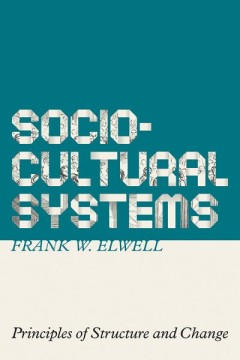
Sociocultural Systems Principles of Structure and Change
Elwell argues that, as evolution does for biology, the macrosociological paradigm offers an analytical strategy that can be used both to guide and prioritize research in all of the myriad specialties within sociology and to lay forth an orderly body of knowledge for students. Clearly articulating important sociological principles, Sociocultural Systems provides a critical understanding of socia…
- Edition
- -
- ISBN/ISSN
- 9781927356203.01
- Collation
- -
- Series Title
- -
- Call Number
- 6 x 9, 404 pages
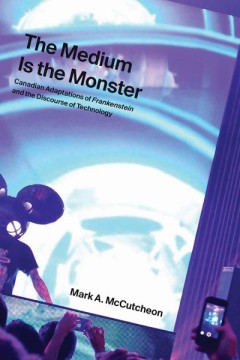
The Medium Is the Monster Canadian Adaptations of Frankenstein and the Disco…
Technology, a word that emerged historically first to denote the study of any art or technique, has come, in modernity, to describe advanced machines, industrial systems, and media. McCutcheon argues that it is Mary Shelley’s 1818 novel Frankenstein that effectively reinvented the meaning of the word for modern English. It was then Marshall McLuhan’s media theory and its adaptations in Cana…
- Edition
- -
- ISBN/ISSN
- 9781771992244.01
- Collation
- -
- Series Title
- -
- Call Number
- 6 x 9, 248 pages

How to Read Like You Mean It
Building on the work of hermeneutics scholar Paul Ricoeur, Conway evaluates the recurring paradox of miscommunication that results in deeper understanding and proposes strategies for reading that will allow individuals give up the illusion of certainty. In elegant and compelling prose, Conway introduces readers to the idea that it is through uncertainty that we can gain access to new and meanin…
- Edition
- -
- ISBN/ISSN
- -
- Collation
- -
- Series Title
- Cultural Dialectics
- Call Number
- 6 x 9, 168 pages
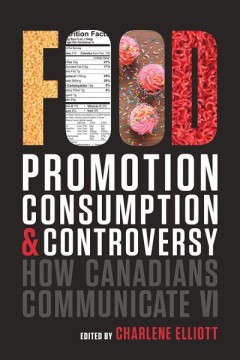
How Canadians Communicate VI Food Promotion, Consumption, and Controversy
By examining topics such as the values embedded in food marketing, the locavore movement, food tourism, dinner parties, food bank donations, the moral panic surrounding obesity, food crises, and fears about food safety, the contributors to this volume paint a rich, and sometimes unsettling portrait of how food is represented, regulated, and consumed in Canada. With chapters from leading scholar…
- Edition
- -
- ISBN/ISSN
- 9781771990257.01
- Collation
- -
- Series Title
- -
- Call Number
- 336 pages
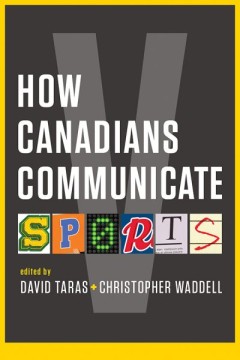
How Canadians Communicate V Sports
Writing from a variety of perspectives, the contributors to this collection set out to explore the impact of the media on our reception of, and attitudes toward, sports—to unpack the meanings that sports have for us as citizens and consumers. Some contributors probe the function of sports as spectacle—the escalation of violence, controversies over drug use, and the media’s coverage of tra…
- Edition
- -
- ISBN/ISSN
- 9781771990073.01
- Collation
- -
- Series Title
- -
- Call Number
- 395 pages
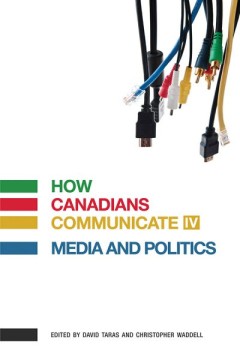
How Canadians Communicate IV Media and Politics
With contributions from such diverse figures as Elly Alboim, Richard Davis, Tom Flanagan, David Marshall, and Roger Epp, How Canadians Communicate IV is the most comprehensive review of political communication in Canada in over three decades – one that poses questions fundamental to the quality of public life.
- Edition
- -
- ISBN/ISSN
- 9781926836812.01
- Collation
- -
- Series Title
- -
- Call Number
- 400 pages
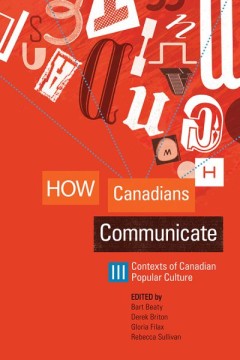
How Canadians Communicate III Contexts of Canadian Popular Culture
Canada does indeed have a popular culture distinct from other nations. How Canadians Communicate III gathers the country’s most inquisitive experts on Canadian popular culture to prove its thesis.
- Edition
- -
- ISBN/ISSN
- 9781897425596.01
- Collation
- -
- Series Title
- -
- Call Number
- 369 pages
 Computer Science, Information & General Works
Computer Science, Information & General Works  Philosophy & Psychology
Philosophy & Psychology  Religion
Religion  Social Sciences
Social Sciences  Language
Language  Pure Science
Pure Science  Applied Sciences
Applied Sciences  Art & Recreation
Art & Recreation  Literature
Literature  History & Geography
History & Geography